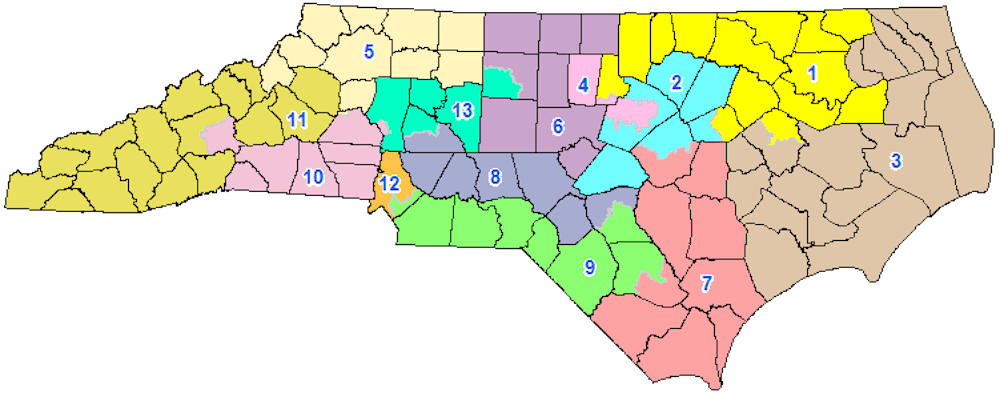A federal district court panel in Greensboro on Monday confirmed its January decision that the N.C. General Assembly unconstitutionally gerrymandered congressional districts in a way that favored Republican candidates when lines were redrawn in 2016.
The U.S. Supreme Court remanded the decision to the court in June, asking the three justices to decide whether the plaintiffs had the right to sue. The plaintiffs in the case included political organization Common Cause North Carolina, voting rights activist groups and residents of North Carolina.
Republicans currently hold 10 of the 13 congressional seats in North Carolina.
Bob Phillips, executive director for Common Cause North Carolina, said there is a long history in North Carolina of the party in power drawing district lines to its own advantage. In the opinion, Judge James Wynn wrote voters have called for a ruling on the constitutionality of congressional district plans drawn by state legislatures for 30 years.
For Common Cause, the tipping point came in 2016.
“When the legislature had to come back in 2016 to draw a new congressional map because of racial gerrymandering, they admitted it was a partisan gerrymander,” Phillips said. “That was something we had never heard out in the open quite like that.”
A press release published by Common Cause following the court’s ruling on Monday quoted remarks from N.C. Rep. David Lewis, R-Harnett, from a redistricting committee meeting in 2016.
“We want to make clear that we ... are going to use political data in drawing this map,” Lewis said in 2016. “It is to gain partisan advantage on the map. I want that criteria to be clearly stated and understood.”
The lines were redrawn in 2016 after some districts were decided to be racially gerrymandered by a federal court. The practice of racial gerrymandering is unconstitutional.



